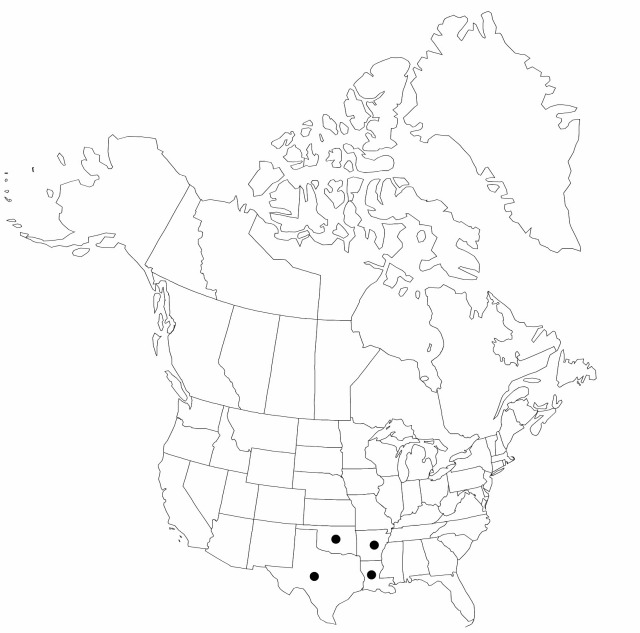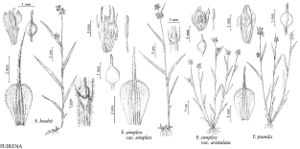Fuirena bushii
Sida 7: 331. 1978.
Herbs perennial, pubescent, to 1 m; rhizomes elongate, slender; corms present. Culms 1–several, then almost densely tufted, proximally smooth, distally hirsute. Leaves: principal blades linear to lance-linear, flat, 5–15 cm, glabrous or sparsely strigose or puberulent, margins proximally or entirely hispid-ciliate. Inflorescences in clusters of terminal spikelets or from 1–2(–3) penultimate nodes, proximal involucral bract exceeding peduncle and cluster. Spikelets ovoid to cylindric, 10–15(–20) mm; fertile scales 3–3.5 mm; cusp excurved, equal to length of scale; median ribs 3, strong. Flowers: perianth bristles incurved, mostly shorter than perianth stipes, mostly smooth; perianth blades short-oblong, ± as long as stipes, apex acute, strongly incurved, tumid distally, sometimes apiculate; anthers 3, 1–1.3 mm. Achenes: body angles wirelike, faces lustrous brown to red-brown, 1 mm; beak linear, hispidulous at dilated tip. 2n = 46.
Phenology: Fruiting summer–fall.
Habitat: Acid bogs or seeps, flatwoods and savanna
Elevation: 0–200 m
Distribution

Ark., La., Okla., Tex.
Discussion
Plants of the Gulf Coastal Plain and the Ozarks from Louisiana and Arkansas southwestward have the cormose parts of the rhizome often separated by distinct intervals of narrow internode longer than the corm width.
Selected References
None.
